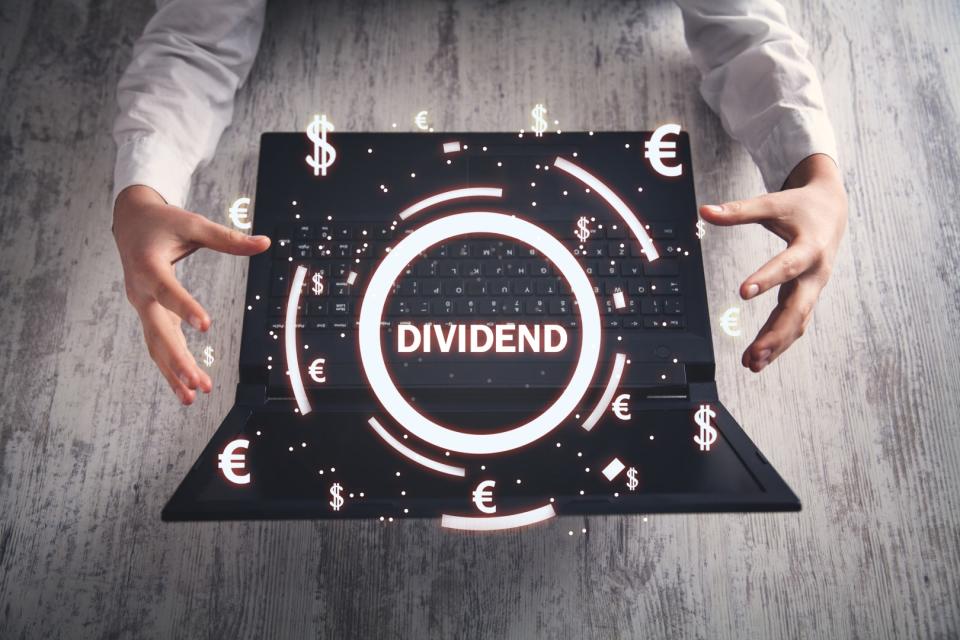
The big surprise in Meta Platforms‘ (NASDAQ: META) fourth-quarter earnings report last week was the initiation of the social media giant’s first-ever dividend. Meta will pay $0.50 per share to shareholders of record on Feb. 22. On an annualized basis, that works out to a dividend yield of about 0.5%.
This dividend yield will likely grow over time as Meta boosts its payout, although share buybacks are still a big part of the equation. Along with the dividend announcement, Meta disclosed that an additional $50 billion had been allocated for share buybacks. Meta poured nearly $20 billion into buying back its own stock in 2023; the dividend will eat up just over $5 billion over the next year if it remains at its current level.
A tough sell for dividend investors
For dividend investors, Meta is a tough sell. There’s plenty of room to grow the dividend over time; Meta reported a net income of $39 billion and a free cash flow of $44 billion for 2023. However, share buybacks appear to be the priority. If Meta takes the same path as Apple, which has been paying a dividend for a decade but still sports a dividend yield of around 0.5%, the dividend will never be all that consequential.
Another wrinkle is Meta’s valuation. The stock isn’t overly expensive, but it’s not cheap, either. With a market capitalization of around $1.2 trillion following a post-earnings rally, the stock trades for roughly 27 times free cash flow.
While Meta reported strong growth in Q4, with revenue surging 25% year over year and net income more than tripling, there’s plenty of long-term uncertainty. For one, the core social media business faces the prospect of increased regulation. “We could regulate you out of business if we wanted to,” said Senator Thom Tillis during a recent Senate hearing with top social media executives focused on child safety.
Meta’s vast investments in the metaverse and artificial intelligence (AI) also have unclear and uncertain payoffs. Reality Labs, Meta’s metaverse-focused division, reported an operating loss of $16 billion in 2023, and the company is pouring additional cash into AI hardware. Improving its various platforms with AI features makes sense, but it will be an expensive proposition.
A better deal for dividend investors
For those not sold on Meta’s long-term potential, International Business Machines (NYSE: IBM) looks like a far better deal. IBM’s artificial intelligence strategy is crystal clear: Help its enterprise clients deploy AI technology through a mix of software and consulting services.
While IBM’s watsonx AI platform is a key component of this strategy, consulting is what brings customers in the door. The company disclosed in its Q4 report that AI commitments from customers doubled in Q4 from Q3, with two-thirds of business driven by the consulting arm.
IBM produced $11.2 billion of free cash flow in 2023, and strong demand for AI products and services will contribute to growth in 2024. The company is eyeing $12 billion of free cash flow in 2024, which puts the price-to-free cash flow ratio at about 14, or roughly half that of Meta.
IBM is growing more slowly than Meta, with mid-single-digit revenue growth expected for 2024. However, IBM’s business comes with less uncertainty. While demand for IBM’s enterprise software and services will ebb and flow with economic conditions, the company doesn’t face existential threats like Meta’s social media business, and it isn’t relying on a moonshot like Meta’s metaverse business.
Then there’s the dividend. IBM has paid a quarterly dividend uninterrupted since 1916, and it’s raised that dividend annually for nearly three decades. Based on the latest quarterly payment of $1.66 per share, IBM stock currently sports a dividend yield of about 3.6%, more than double the S&P 500‘s meager 1.4% yield.
That dividend is well covered by free cash flow. IBM is set to pay out approximately $6.1 billion in dividends over the next year, which will eat up a hair over 50% of its free cash flow. This leaves plenty left over for other uses, including debt reduction, acquisitions, and a potential restart of share buybacks. IBM suspended all share buybacks after its megadeal for software company Red Hat closed in 2019.
Shares of IBM have rallied over the past year, gaining nearly 40% as investors started to buy into the company’s growth story. While IBM isn’t a growth stock like Meta, a combination of less uncertainty, a discounted valuation, and a far more generous dividend makes IBM stock a better buy.
Should you invest $1,000 in International Business Machines right now?
Before you buy stock in International Business Machines, consider this:
The Motley Fool Stock Advisor analyst team just identified what they believe are the 10 best stocks for investors to buy now… and International Business Machines wasn’t one of them. The 10 stocks that made the cut could produce monster returns in the coming years.
Stock Advisor provides investors with an easy-to-follow blueprint for success, including guidance on building a portfolio, regular updates from analysts, and two new stock picks each month. The Stock Advisor service has more than tripled the return of S&P 500 since 2002*.
*Stock Advisor returns as of January 29, 2024
Randi Zuckerberg, a former director of market development and spokeswoman for Facebook and sister to Meta Platforms CEO Mark Zuckerberg, is a member of The Motley Fool’s board of directors. Timothy Green has positions in International Business Machines. The Motley Fool has positions in and recommends Apple and Meta Platforms. The Motley Fool recommends International Business Machines. The Motley Fool has a disclosure policy.
Meta Is Now a Dividend Stock, but This Tech Giant Is a Better Buy was originally published by The Motley Fool
Source: finance.yahoo.com
